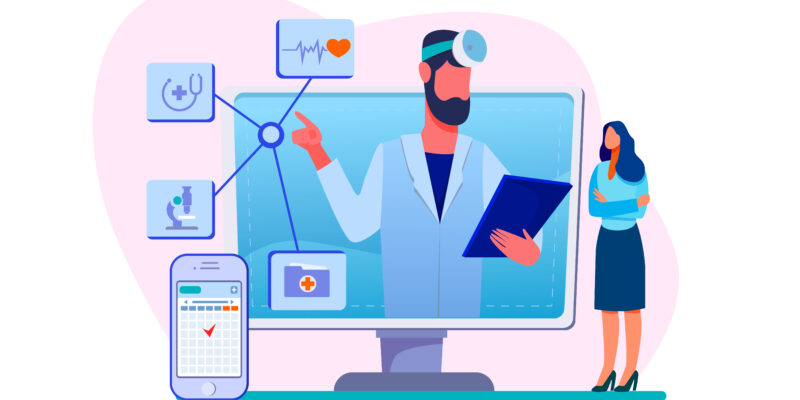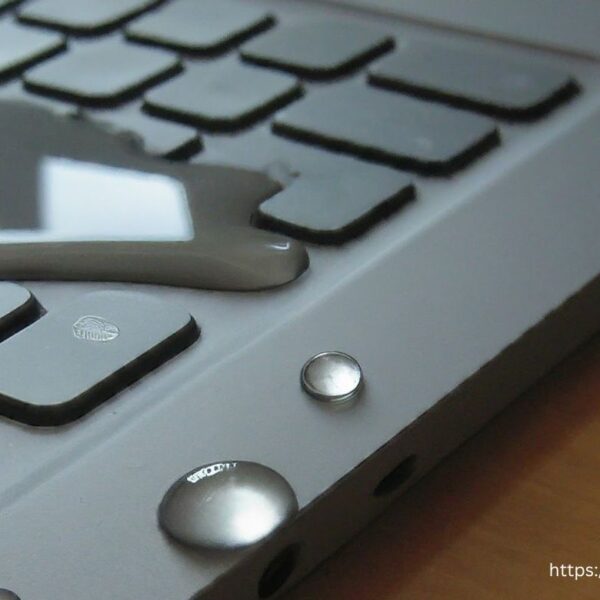
In today’s fast-paced world, the healthcare industry is continually seeking ways to improve efficiency and patient care. Technological advancements have provided numerous opportunities to streamline workflows and enhance overall healthcare experiences. By embracing five key technology changes, healthcare organizations can revolutionize their operations and deliver better outcomes for patients.
Introduction
Healthcare workflow encompasses a vast array of activities, from patient registration to treatment and follow-up care. Traditional methods often involve cumbersome paperwork, lengthy wait times, and disjointed communication between healthcare providers. However, with the integration of technology, these challenges can be overcome, leading to a more seamless and efficient healthcare system.
Electronic Health Records (EHR)
Electronic Health Records (EHR) have transformed the way patient information is stored and accessed. By digitizing medical records, healthcare providers can easily retrieve essential data, such as medical history, lab results, and medication lists, at the click of a button. This not only saves time but also reduces the risk of errors associated with manual record-keeping.
Benefits of EHR
- Improved Accessibility: Healthcare professionals can access patient records remotely, enabling better coordination of care.
- Enhanced Patient Safety: EHR systems facilitate the tracking of medications and allergies, reducing the likelihood of adverse drug reactions.
- Efficient Documentation: Digital records allow for faster and more accurate documentation of patient encounters, leading to better communication among healthcare teams.
Challenges of EHR Implementation
- Cost: The initial investment required to implement EHR systems can be substantial for smaller healthcare facilities.
- Data Security: Protecting sensitive patient information from cyber threats is a top priority but can pose challenges due to evolving cybersecurity risks.
- User Training: Healthcare staff may require training to navigate and utilize EHR systems effectively, leading to productivity disruptions during the transition phase.
Telemedicine
Telemedicine has emerged as a game-changer in healthcare delivery, especially in remote or underserved areas. By leveraging telecommunications technology, patients can consult with healthcare providers virtually, eliminating the need for physical visits to clinics or hospitals.
Advantages of Telemedicine
- Expanded Access to Care: Telemedicine enables patients to receive medical advice and treatment from the comfort of their homes, overcoming geographical barriers.
- Reduced Healthcare Costs: By reducing the need for in-person visits, telemedicine can lead to cost savings for both patients and healthcare providers.
- Convenient Follow-up Care: Patients can easily follow up with their healthcare providers through virtual appointments, promoting continuity of care.
Overcoming Telemedicine Challenges
- Internet Connectivity: In rural or remote areas with limited internet access, ensuring reliable connectivity for telemedicine consultations can be a challenge.
- Regulatory Compliance: Compliance with state and federal regulations regarding telemedicine practices requires careful consideration to avoid legal pitfalls.
- Patient Engagement: Encouraging patients to embrace telemedicine may require education and outreach efforts to address concerns about the quality of virtual care.
Artificial Intelligence (AI) in Healthcare
Artificial Intelligence (AI) holds immense potential for transforming healthcare by analyzing vast amounts of data and assisting healthcare providers in clinical decision-making.
Applications of AI
- Diagnostic Assistance: AI algorithms can analyze medical images and diagnostic tests to aid in the detection and diagnosis of diseases.
- Predictive Analytics: AI-driven predictive models can identify patients at risk of developing certain conditions, allowing for proactive interventions.
- Personalized Medicine: By analyzing genetic and clinical data, AI can help tailor treatment plans to individual patients, optimizing outcomes.
Addressing AI Implementation Hurdles
- Data Quality and Privacy: Ensuring the accuracy and privacy of healthcare data used to train AI models is crucial to maintaining trust and compliance.
- Ethical Considerations: Ethical dilemmas surrounding AI, such as bias in algorithms and accountability for AI-driven decisions, require careful ethical frameworks.
- Integration with Existing Systems: Seamless integration of AI tools into existing healthcare workflows without disrupting clinical operations is essential for successful implementation.
Wearable Health Devices
Wearable health devices, such as smartwatches and fitness trackers, offer real-time monitoring of vital signs and health metrics, empowering individuals to take control of their health.
Benefits of Wearable Health Devices
- Continuous Monitoring: Wearable devices provide continuous monitoring of heart rate, activity levels, and sleep patterns, enabling early detection of health issues.
- Behavioral Insights: Data collected from wearable devices can offer valuable insights into lifestyle habits and help individuals make informed decisions about their health.
- Remote Patient Monitoring: Healthcare providers can remotely monitor patients with chronic conditions, allowing for timely interventions and reduced hospitalizations.
Addressing Concerns About Wearable Health Devices
- Data Security: Protecting the privacy of health data collected by wearable devices is paramount, requiring robust security measures and encryption protocols.
- Accuracy and Reliability: Ensuring the accuracy and reliability of data generated by wearable devices is essential for making informed healthcare decisions.
- User Adoption: Encouraging widespread adoption of wearable health devices may require addressing concerns about usability, comfort, and battery life.
Blockchain Technology
Blockchain technology offers a secure and transparent platform for storing and sharing healthcare data, enhancing data integrity, and interoperability.
Utilization of Blockchain in Healthcare
- Secure Health Records: Blockchain-based systems can encrypt and store health records in a tamper-proof manner, preventing unauthorized access or modifications.
- Streamlined Data Sharing: Blockchain enables secure sharing of patient data across healthcare providers, facilitating interoperability and care coordination.
- Drug Traceability: Blockchain can track the entire lifecycle of pharmaceuticals, from manufacturing to distribution, reducing the risk of counterfeit drugs and ensuring patient safety.
Addressing Blockchain Implementation Challenges
- Regulatory Compliance: Adhering to regulatory requirements, such as HIPAA in the United States, while implementing blockchain solutions requires careful navigation of legal and compliance frameworks.
- Scalability: Ensuring scalability and performance of blockchain networks to handle the volume of healthcare transactions is crucial for widespread adoption.
- Interoperability: Achieving seamless integration of blockchain with existing healthcare IT systems and standards is essential for interoperability and data exchange.
Conclusion:











